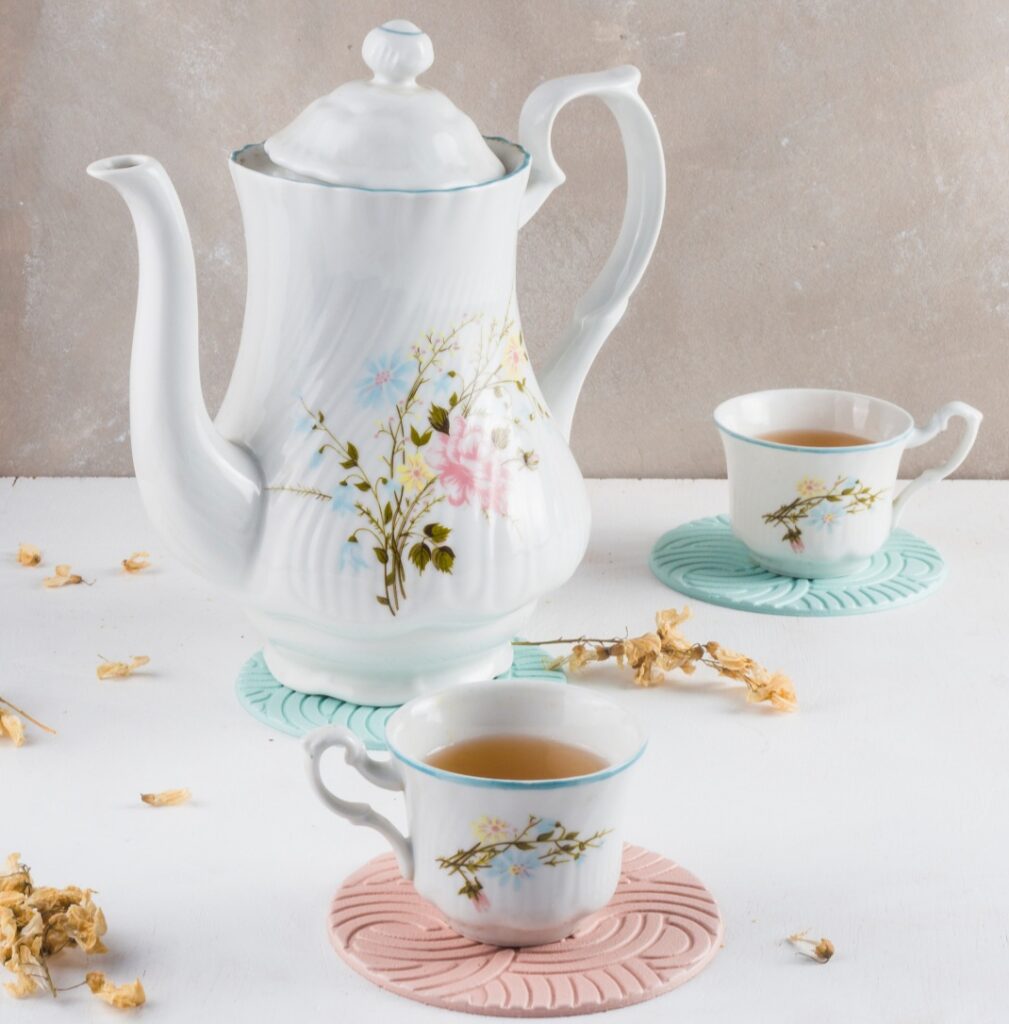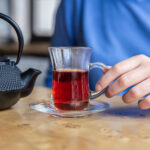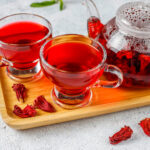
Mullein (Verbascum) has been utilized in traditional medicine for centuries to address various health conditions such as digestive issues, respiratory problems, and skin diseases. Today, mullein leaves and flowers are commonly consumed in forms like capsules, powders, or tea. Mullein tea, made from the leaves of the common mullein plant (Verbascum thapsus), is especially popular for its potential health benefits.
Benefits and Risks of Mullein Tea
May Improve Respiratory Conditions
Historically, mullein has been used to treat respiratory ailments, including asthma, colds, cough, bronchitis, hoarseness, and tonsillitis. The plant is believed to have expectorant, anti-inflammatory, and antibacterial properties, which may explain its potential in managing respiratory issues. By reducing inflammation, mullein may help relax airway muscles, easing breathing difficulties. As an expectorant, it helps clear congestion by thinning and loosening mucus in the airway. Studies suggest mullein contains mucilages with demulcent activity, forming a soothing film over mucous membranes and reducing pain and inflammation. There is also evidence that mullein may suppress cough by acting on the cough center in the brain or receptors within respiratory passages. However, most studies are conducted on animals or in labs, so further research is needed to confirm these effects in humans.
Antiviral Properties
Laboratory studies suggest mullein may protect against viruses such as herpes and influenza A. Influenza A is the most common type of flu virus and often causes severe symptoms. Herpes, spread by skin-to-skin contact, leads to painful blisters or ulcers in the mouth or genitals. While these findings are promising, human studies are necessary to determine the actual effect of mullein tea on these viruses.
Antibacterial Properties
Mullein also shows potential antibacterial properties, possibly protecting against bacteria involved in respiratory infections. Reviews highlight its action against strains like Streptococcus pyogenes, Escherichia coli, Klebsiella pneumoniae, Staphylococcus aureus, and Staphylococcus epidermidis. Staph bacteria can cause infections in bones, bloodstream, skin, and heart linings, and lead to conditions like pneumonia and food poisoning. A test-tube study found that mullein extract effectively reduced the growth of several bacterial strains, especially Bacillus cereus, which can cause food poisoning when ingested. Human studies are needed to confirm these antibacterial effects.
May Reduce Inflammation
Inflammation is part of the body’s defense against infection, but chronic inflammation can lead to diseases such as diabetes, heart disease, and cancer. Mullein tea is rich in flavonoids like luteolin, quercetin, and apigenin, known to reduce inflammation. An animal study indicated that verbascoside, a compound in mullein, might help treat osteoarthritis by reducing inflammation and swelling.
Nutritional Facts of Mullein Tea
Mullein contains beneficial plant compounds, including flavonoids, saponins, and vitamin C. However, mullein tea is not a significant source of calories, vitamins, or minerals. Most herbal teas contain around two calories, less than 1 gram of carbohydrates, and trace amounts of vitamins and minerals. Adding sugar, milk, or other ingredients can alter its nutritional value.
Risks of Drinking Mullein Tea
When consumed in moderation, mullein tea is generally safe and unlikely to cause significant side effects. No severe side effects have been linked to mullein. For instance, participants in a study using mullein cream for episiotomy wounds did not experience severe side effects. However, more research is needed to determine the optimal dosage and safety for humans. Some individuals may experience skin irritation when in contact with mullein plants. Pregnant or breastfeeding individuals should consult healthcare professionals before consuming mullein tea. If any symptoms occur after drinking mullein tea, it is advisable to stop consumption and contact a healthcare provider.
Tips for Consuming Mullein Tea
Mullein tea has a mild, earthy flavor with slight sweetness. It can be purchased as tea bags or dried loose leaves from natural food stores, grocery stores, and online retailers. To make mullein tea, add 1 to 2 teaspoons of dried leaves to 8 ounces of boiling water, steep for 10-15 minutes, and strain through a coffee filter or cheesecloth to avoid throat irritation from the plant’s fluffy hairs.
in summary
Mullein tea offers potential health benefits, particularly for respiratory conditions, due to its expectorant, anti-inflammatory, and antibacterial properties. While promising, more human studies are needed to confirm these effects. Consumed in moderation, mullein tea is generally safe, but it’s essential to be aware of potential skin irritation and consult healthcare professionals if pregnant or breastfeeding
A Quick Review
Mullein tea, made from the leaves of the Verbascum thapsus plant, offers numerous health benefits, particularly for respiratory issues. It possesses anti-inflammatory, antiviral, and antibacterial properties. The tea is rich in flavonoids and generally safe for consumption, though skin irritation can occur in some cases. Pregnant or breastfeeding women should consult healthcare professionals before use. Easy to prepare, mullein tea can be a beneficial addition to your diet.











